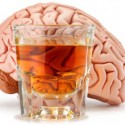Alcohol in new Zealand
Alcohol has been excessively commercialised, over-hyped and over-sold.
It is treated in the market place as if it were just an ordinary grocery item when, in fact, it is a highly intoxicating recreational drug, argues Doug Sellman.
There is little doubt that New Zealand has a serious alcohol problem.
Every day we are presented with disturbing evidence of the social deterioration and crime caused by the excessive consumption of alcohol.
New Zealand is paying a heavy price through deaths, injuries, chronic diseases, police apprehensions and overburdened emergency departments, particularly during the weekends; all directly related to out-of-control drinking.
It is unusual to read a newspaper or hear a news broadcast these days and not find at least one reference to the misery and mayhem that alcohol has caused, especially among young people.
The numbers thrown up by this crisis are staggering.
At least a third of all police apprehensions are alcohol-related, more than half of all serious violent crime involves alcohol (Stevenson 2009) and more than 17,000 years of life are lost through alcohol in New Zealand every year, due to the concentration of alcohol-related deaths (Connor et al 2005).
Increasingly, we are becoming a nation of heavy and out-of-control drinkers, including adults over the age of 25 years.
The best estimate of the number of people older than 15 who are heavy drinkers is 25% (Wells et al 2006), but this is known to be conservative, and actual figure could be substantially higher.
What is driving this national heavy-drinking culture and its negative and costly social consequences? In my view, having worked in this field for more than 20 years as a psychiatrist, addiction specialist and health researcher, the deregulated way alcohol is marketed and sold in New Zealand is a major factor.
Alcohol has been excessively commercialised, over-hyped and over-sold; treated in the market place as if it were an ordinary grocery item.
Alcohol is quite different from bread or milk.
It is a highly intoxicating recreational drug that has been demonstrated to have the same level of potential harm to public health as morphine and dexamphetamine (Sellman et al 2009), which makes unrestricted 24-hour, seven days-a week supermarket sales by checkout personnel as young as 16 seem more than a little odd.
It is outrageous.
However, there may be light at the end of the tunnel.
There is at present an opportunity to bring about changes that would make New Zealand a safer and healthier place to live, and reduce the cost that alcohol excess is causing taxpayers.
The Law Commission is conducting a first-principles review of the liquor laws, including wide public consultation.
Changing the commercial and legal environment in which alcohol is being marketed and sold is how real social change will occur.
Unfortunately education campaigns, and hopes that people will spontaneously reduce their drinking to less risky and civilised amounts has not worked.
More effective regulation is what is required to stop socially destructive excess consumption of alcohol.
Clear solutions to our present problems with alcohol are encompassed in an internationally-acclaimed publication titled Alcohol: no ordinary commodity (Babor et al 2003).
Sponsored by the World Health Organisation, it sets out the scientific evidence for what works in terms of reducing alcohol-related harm to individuals, communities and countries.
From this publication a group of colleagues and I have formulated a solution to New Zealand’s alcohol crisis.
“The 5+ Solution” is as follows. –
Raise alcohol prices
Raise the purchase age
Reduce alcohol accessibility
Reduce marketing and advertising
Increase drink-driving counter-measures
Plus: Increase treatment opportunities for heavy drinkers.
A recent series on alcohol in The Lancet, one of the top medical journals in the world, confirmed this set of policy directives (Anderson et al 2009) as the right direction for better liquor control and significantly reduced damage to our nation.
As Professor of Psychiatry and Addiction Medicine at the University of Otago, Christchurch, I am at present undertaking a national lecture tour promoting the 5+ Solution, and launching a new national group called Alcohol Action New Zealand (www.alcoholaction.co.nz [2]).
The lecture is titled Ten things the alcohol industry won’t tell you about alcohol.
It reveals information that New Zealanders have the right to know: that among other things alcohol can cause cancer, that it is a neurotoxin and can cause brain damage, and that it can directly cause aggressiveness and anti-social behaviour.
These are not things that the industry is likely to voluntarily warn its customers about.
On the contrary, the underlying marketing messages of the alcohol industry are that life can’t be enjoyed without alcohol, that social events aren’t proper events without alcohol and that to be in the in-crowd means drinking with the in-crowd.
At the same time, it is ironic that the industry’s favourite customers, the 25% of New Zealand drinkers who are drinking heavily, are the same people for whom the Government is encouraging doctors to provide treatment.
Furthermore, the alcohol industry (including the hospitality lobby), like the gun lobby in the United States, and the global tobacco industry, is employing smoke-screen tactics, such as trying to shift the complete blame for the social damage from alcohol on to the individual drinker, totally avoiding any acceptance of social responsibility for the problems that their stoked-up commercial activities are causing.
What the Government does is ultimately dependent on public opinion.
If we want a safer and healthier New Zealand, we need a clear reduction in the mass marketing and gross accessibility of alcohol that exists at present.
What is happening in New Zealand is in many ways the opposite of the civilised drinking that was promised with deregulation and the lowering of the alcohol purchase age.
Change will come only if the outcome of the Law Commission’s review is a recommendation to change the liquor laws along the lines of the 5+ Solution, and the Government recognises that voters support this.
source: Otago Daily Times


